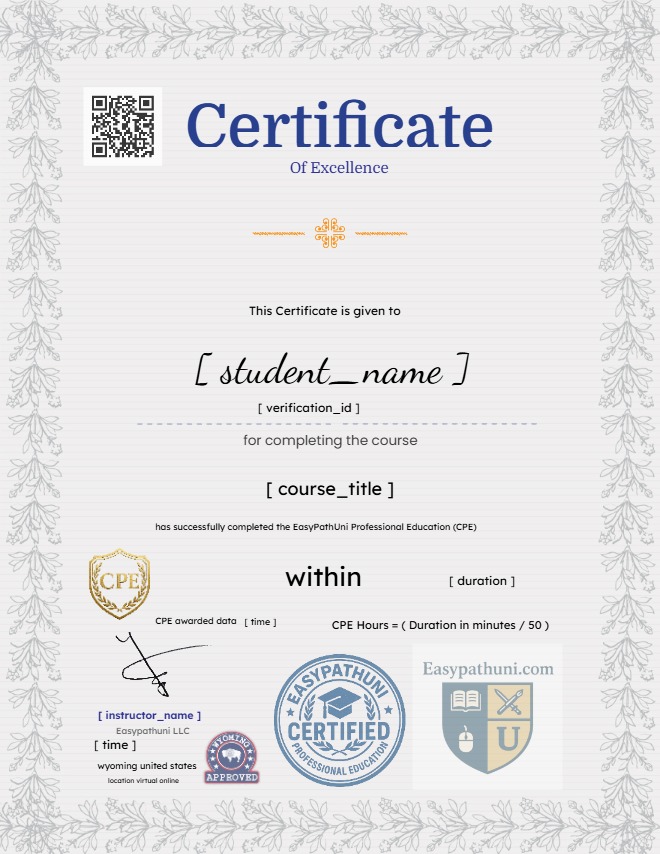Strategic Project Management
About Course
Unlock the skills to manage projects of any size, in any industry, with confidence.
In today’s fast-paced business environment, the ability to deliver projects on time, on budget, and with measurable impact is a competitive advantage. Whether you’re a budding project manager, an experienced professional aiming for certification, or a business leader seeking better project outcomes, this course will equip you with the strategies, tools, and processes to succeed.
By the end of , you will be able to:
Understand the five process groups: Initiating, Planning, Executing, Monitoring & Controlling, and Closing
Apply the ten knowledge areas to real-world projects
Select the right project management methodology for different project types
Manage multiple projects simultaneously with tailored approaches
Align projects with business goals to deliver measurable value
Prepare for certification with a solid theoretical foundation
————-
Disclaimer:
This course is independently developed by the instructor and is not affiliated with, endorsed by, or officially recognized by PMI or any other certification body. The content is designed for educational purposes and study aid only. There is no guarantee of passing the PMP or any other official exam. Participants will receive a preparatory attendance certificate issued by the instructor or organizing entity, which does not represent an official credential or proof of certification. To obtain official certification, candidates must register and complete exams directly with PMI.
Additionally, some video materials used in the course are licensed under Creative Commons Attribution International (CC BY 3.0 AND 4.0 )
Licence
, which allows sharing and adaptation with proper attribution.
Course Content
Unit 1.What is Project Management?
-
What is Project Management: Strategic Project Management Unit 1
-
1.1: Introduction to Project Management
08:27 -
1 1 Introduction to Project Management Broadcast
-
1.2: Strategic Vision
06:05 -
1 2 Strategic Vision Broadcast
-
1.3 Framework for Project Management
00:00 -
1 3 Framework for Project Management Broadcast
-
1.3 B Framework for Project Management QAS
-
1.4 Reasons Projects Succeed or Fail
06:02 -
1 4 Reasons Projects Succeed or Fail Broadcast
Unit 2: The Project Lifecycle
Unit 3: Initiating Projects
Unit 4: Planning Projects
Unit 5: Executing Projects
Unit 6: Monitoring and Controlling Projects
Unit 7: Closing Projects
Case Study
EXAM
Earn a certificate
Add this certificate to your resume to demonstrate your skills & increase your chances of getting noticed.

Student Ratings & Reviews

